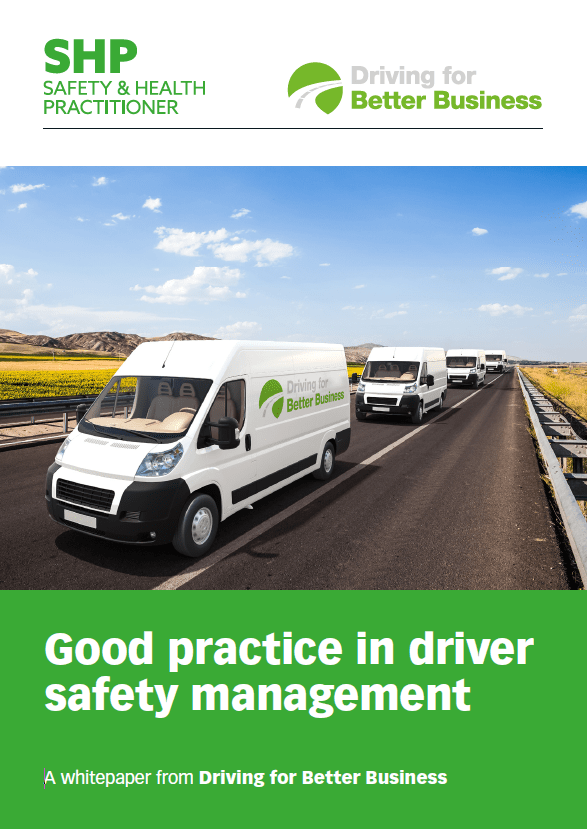In his second regular monthly column for SHP, Simon Turner at Driving for Better Business looks at drug driving and how employers can look to educate and ultimately prevent it in their fleet.
All fleets are very aware of the dangers of drink driving – but what about drugs? Recreational drug use can be widespread and very hard to spot. However, two things separate drug use from alcohol use:
- There is no legal threshold for illegal drugs.
- Some drugs can persist in the body even days after consumption, despite the driver believing they are unaffected.

CREDIT: Fresh Start Images/ Alamy Stock Photo
In a recent edition of the Driving for Better Business podcast, MD of drug detection company DTec International Ean Lewin said: “The way we see good practice is that we have policy; we have education, we have a deterrent and then we have detection.”
In a six-week period before Christmas 2022, Merseyside police arrested 500+ drivers for suspected impairment; 351 were on drugs and 154 had consumed alcohol. Moreover, says Lewin, half of the drivers arrested for drug impairment in 2020 and 30%+ in 2021 were either driving for work at the time, or would be driving for work the next day.s
The government has started to collate road deaths and casualties in which drug impairment is a contributory factor. Up to one-third of drivers killed in road collisions test positive for drugs – however, the government warns this is an underestimate as not all deceased drivers are tested.
Organisations in which employees drive for work, whether in their own vehicle, or a company asset, have a legal responsibility to ensure that those individuals are fit to drive. This means that human resources staff, line managers, and health and safety professionals must be aware of the dangers of drug driving within their workforce and take reasonable steps to prevent it.
As Lewin says, the first step is a clear, comprehensive policy which drivers read and understand.
In a six-week period before Christmas 2022, Merseyside police arrested 500+ drivers for suspected impairment; 351 were on drugs and 154 had consumed alcohol.
Drivers should be educated about the dangers of drug driving, and the fact that drugs can stay detectable and potentially active for far longer than the driver may realise. While alcohol consumed on a Saturday night will probably have left their system entirely by Monday morning, the same is not true for cannabis.
The most commonly abused drugs are codeine, cocaine and cannabis. Each seriously affects the ability to drive, including poor decision making, impaired perception and impaired reaction times.
Drivers should also understand the legal penalties: drivers caught and convicted of drug driving will receive a mandatory minimum 12-month driving ban and a criminal record; plus the possibility of an unlimited fine; and up to 6 months in prison. The endorsement remains on the driving licence for 11 years, making another driving job highly unlikely.
Drivers need to realise that they cannot be allowed to drive for the company if they are found to have drugs in their system. For most companies this will be a cause for immediate dismissal for gross misconduct.
Detection is the final step in the chain. DTec offers skin-wipe drug detection kits to fleet operators, who can conduct tests for new drivers prior to giving them the keys and then random tests throughout the year.
A ‘non-negative’ test shows that someone has traces of an illicit substance on their skin or in their sweat. However, this must be confirmed by a urine test carried out at an accredited laboratory.
Leslie O’Brien, MD of Halifax-based Freightlink Europe, has used DTec’s services for three years. She says that despite a strictly enforced policy and random tests, she is still occasionally dismayed to find that trusted drivers fail a drug test. However, through rigorous education and testing, she can at least ensure that the company is taking all possible steps, and removing drivers who could otherwise be a danger on the roads.
About DfBB
Driving for Better Business is a free programme to help you reduce work-related road risk, control the associated costs and improve compliance with current legislation and guidance.
The website also contains a number of free drug driving resources to help you raise awareness and communicate with your drivers.
This eBook will guide you through some of the key understandings you need to be able to manage driver safety effectively and, at the end, provide a series of free resources you can access to help you ensure your own driver safety management system is robust, legally compliant and in line with industry-accepted good practice.
Download this eBook from Driving for Better Business and SHP to cover:
- Why do we need to manage driver safety?
- Duty of care – a shared responsibility;
- Setting the rules with a driving for work policy;
- Managing driver safety;
- Ensuring safe vehicles;
- Safe journeys and fitness to drive;
- Record keeping;
- Reporting;
- The business benefits of good practice;
- Additional resources



How timely.
Yesterday’s news reports announced Nitrous Oxide (laughing gas) is to be banned in The U.K.
If drug laws and policing levels were tough enough, and sufficient to deal with the level of crime and drug related offences, then maybe, deaths and road traffic incidents would be significantly reduced.